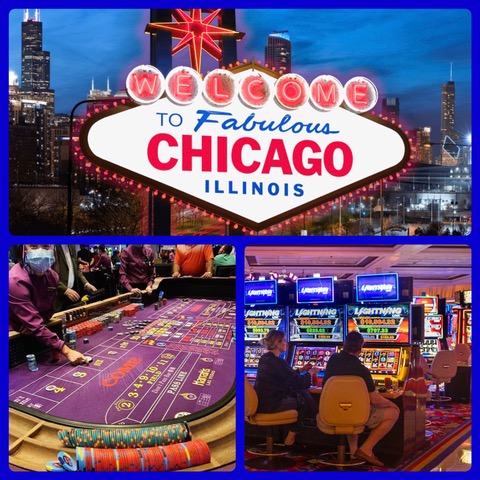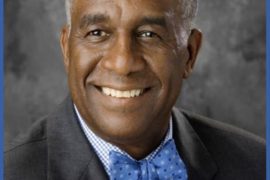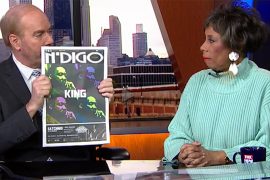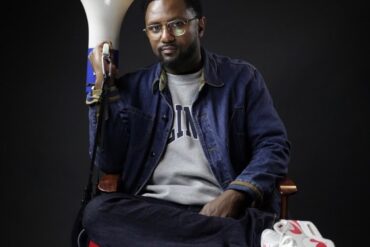Casinos are coming to Chicago, but where exactly is the question. On April 6, 7, and 8, casino bidders had the opportunity to present their big-picture projections to 300 citizens of various communities. Registration was required, and attendees were allowed to ask questions.
The neighborhood people rejected the casinos at large because the change was questionable and unknown. All are concerned with an abundance of traffic and traffic flow issues and how they might impact a neighborhood. This is a basic rejection of all of them.
Here is a summary of all of the casino offerings for Chicago.
Bally’s..
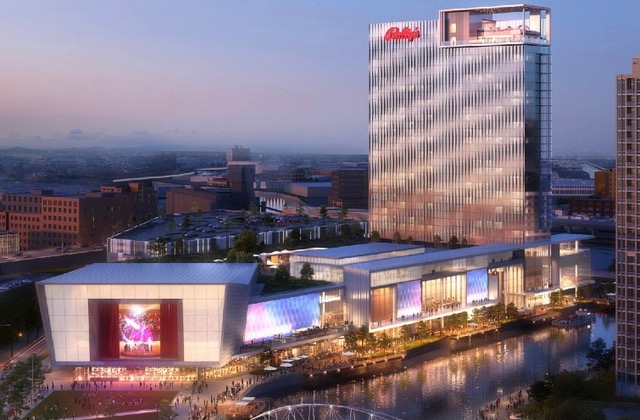
Bally’s is the only pure casino operator. They propose replacing the Chicago Tribune‘s printing plant on Halsted and Chicago Avenue. This is the River West area, and the plan is for a 30-acre site with a $1.3 billion plan. It calls for a theater that would seat 3000, a 500-room luxury hotel that would begin with 100 rooms, and a Riverwalk extension that, in reality, would cut down on traffic and handle traffic flow. In addition, Bally’s proposes a solution to the traffic problem by widening existing streets, constructing new streets through the Tribune site, and improving traffic signals. Their plan promises community ownership, local jobs, and building by a minority-controlled Chicago-based contractor team.
Bally’s was criticized for how they structured the minority investment, claiming that after six years, you could sell your share if you wanted. That sense has been changed, too. Minority investors now can hold on to their investment or sell their ownership position back to Bally’s. The project promises “Women and minorities will account for a minimum of 20% of the ownership.” They also offer the city $25 million upon signing. They are the only ones so far offering an upfront infusion of cash. The Bally’s plan produced the most revenues for the city coffers at $192 million per annum. Bally’s had two sites in their proposal. The one not chosen was the truck marshaling space at McCormick Place.
The 78
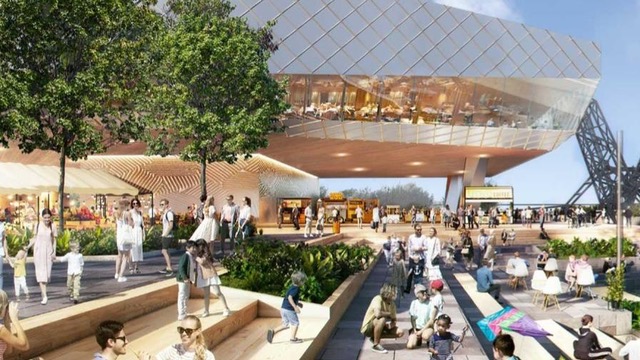
The 78 offers Chicago a brand new community on 12th Street that reimagines a Chicago neighborhood. The casino will house Rush Street Gaming, presented by Chicago’s Related Midwest. It is a mega-development, and the company is experienced in developing urban casinos.
The casino becomes an anchoring part of the development on one end, and the other end proposes an “innovation” educational institution, ‘Discovery,” a university to include the University of Illinois and IIT’s brightest students. The project would be located on 62 acres of land at Roosevelt Road and Clark Street. They propose housing to include affordable housing, with rentals and condos.
Their proposal bids at $1.6 billion and includes “an Eiffel Tower for Chicago” new local-type businesses in the form of eateries, specialty shops, retail shops, and outdoor activity. They also include an entertainment component with a theater for 3000. They even suggest a re-born Mister Kelly’s nightclub that was once a popular spot on Rush Street. It promises to connect Chinatown, Pilsen, Little Italy, Bronzeville, Bridgeport, South Loop, and the Loop. The Riverwalk will extend and expand from downtown to Ping Ton Park with a boutique hotel of 300. They project revenues of $174.2 tax revenue to the city. The development will proceed with or without the casino. An 11-year-old young man made a most interesting observation at the public hearings, saying, “We don’t need a casino to have a nice community.’ The project projects 7,000 construction and permanent jobs.
One Central
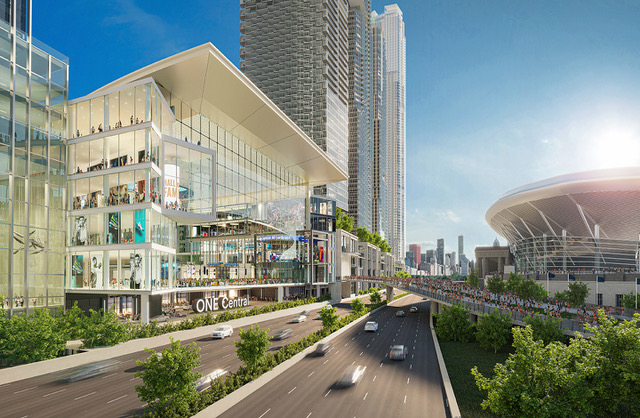
The One Central proposal is a mega-development with a casino included. The casino is Hard Rock. The space is behind Soldier’s Field, proposed by Landmark Development. Minority-owned firm Loop Capital is a partner player. They project $185.3 in revenues for the city tax revenues. The venue calls for a 3500-seat entertainment center and a 500-room hotel on the premises. The project calls for state/city funding and will be a transportation hub for the city, a new line called “CHI-LINE.” The new hub would connect Metra, South Shore Line, Amtrak, and a new L track. The State provides a state subsidy of $6.5 billion for the development. The project proposes that it will proceed without the casino if not granted the license. This is a 10 to 15-year venture.
The Selection Process
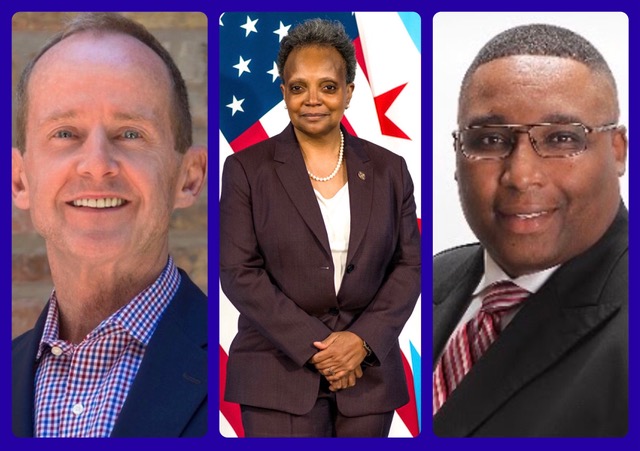
The projects proceed to a City Council committee chaired by Aldermen Thomas Tunney and Jason Ervin. They will recommend a selection to Mayor Lori Lightfoot. Next, the mayor selects and then requires City Council, and finally, the casino requires approval from the State Gaming Board.
The sites bring significant new revenue to the city and take care of the pension fund, which is the real objective. The landscape of the city changes with tourist attractions, new jobs, and new business opportunities. All guarantee minority participation from construction to casino ownership to new business enterprise. The casinos come at election time when the political play is authentic. Lightfoot might bring casinos to town but may not be the one to “build” them. She may make the selection and leave it to another to marshall. Nevertheless, the projects are forward-thinking and will transform Chicago.
The South Loop does not welcome the possible traffic jams and a new traffic flow from the mega projects. But unfortunately, all of the projects remain to be foreseen.
A hidden by-product of the casino is that the new job creation will cause employment in the city, making a major indent on the city’s crime patterns. So there will be lots of opportunities.
In my one-woman opinion, the best sites for the casino were the McCormick Place proposals. The convention site is there, and all roadways lead to McCormick Place. McCormick requires an upgrade that should be done anyway. This is the best place for minimum disruption to coordinate with conventions.


